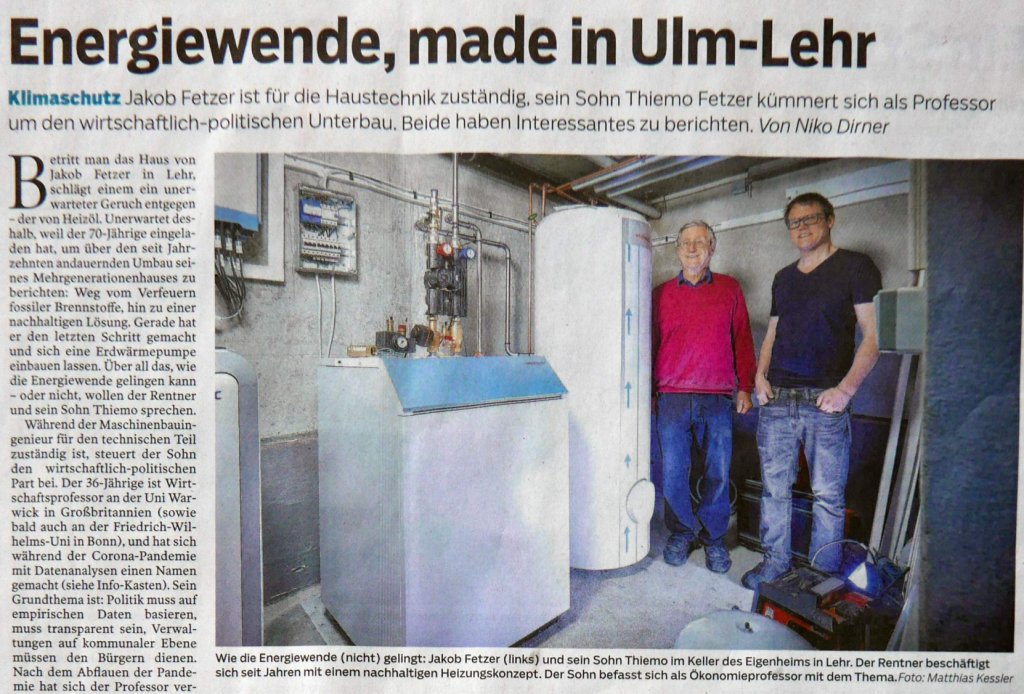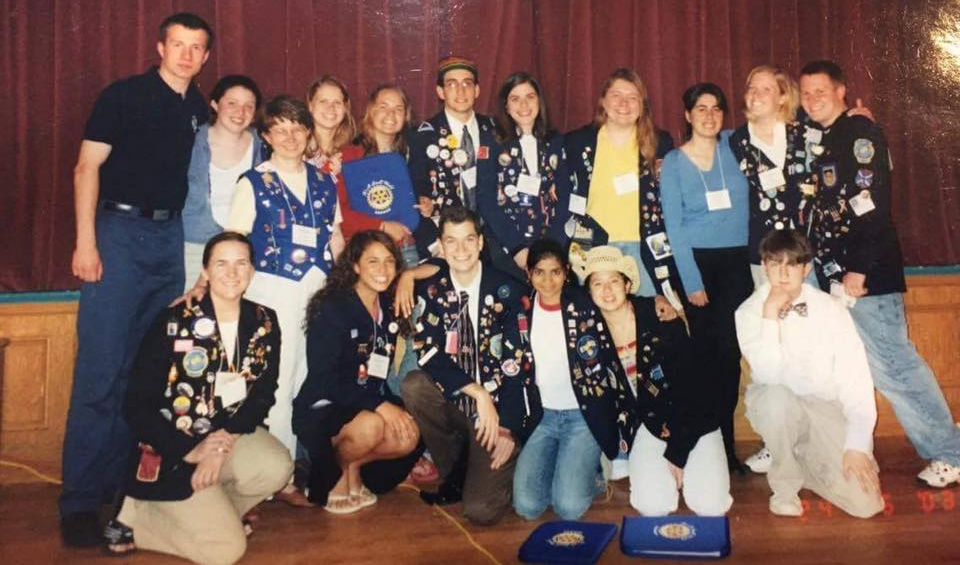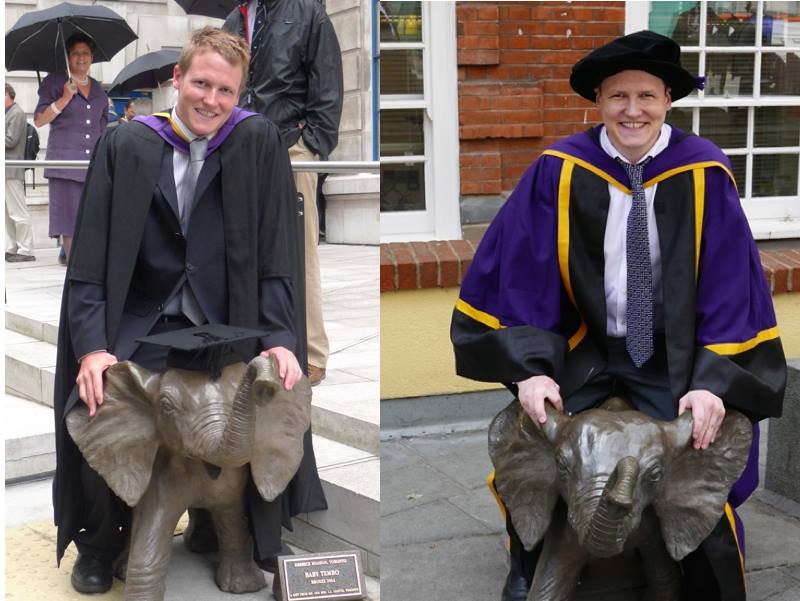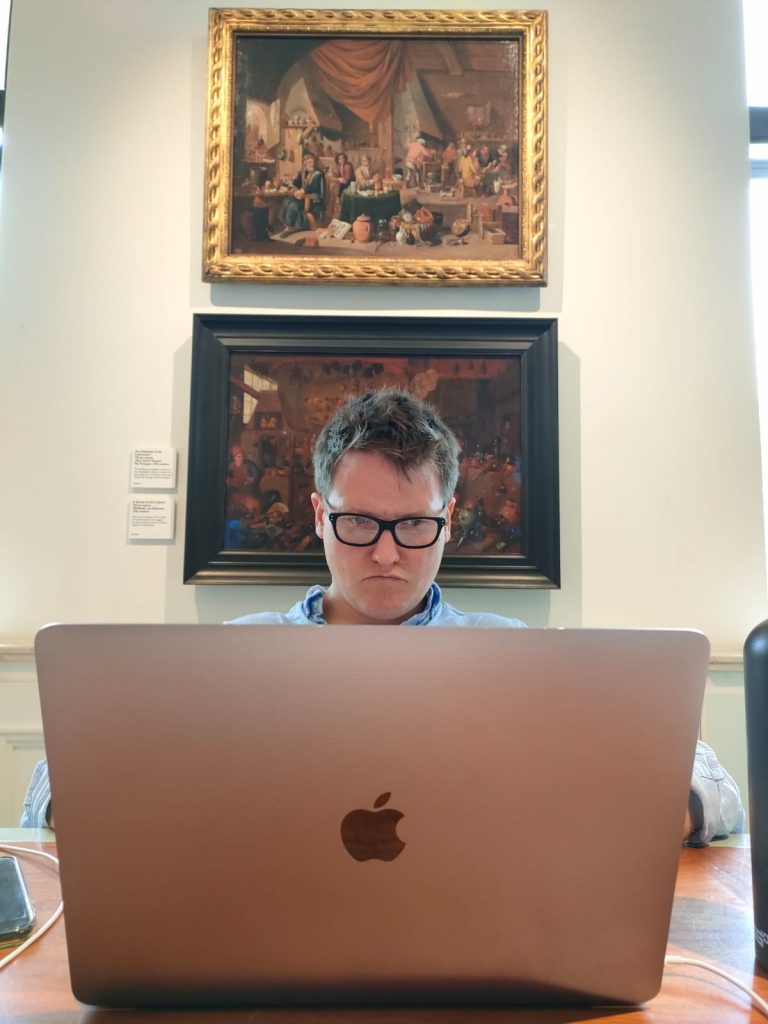I was lucky to grow up in Ulm as the son of an engineer and a housewife and teacher of German to refugees and immigrants as a middle child with two sisters. My father — Jakob a mechanical engineer — grew up as a farmer in a long tradition of farmers from southern Germany. Through my dad I became familiar with the intricacies of energy efficiency in homes — and how to reduce carbon footprints, along with modern heating systems such as air-source or ground-source heat pumps.

The Internet became a living reality in my childhood and youth. The technical details are what interested me and to figure out “what was behind it”. So I went on to teach myself how to code websites, and shared how to do it via an an online magazine through which the exchange of knowledge was strengthened and the technical basics of the internet and the technical possibilities were explained. I also wrote short articles for magazines like CT, Computer Welt – and for the online magazine Dr. Web and the Smashing Magazine, in addition to writing short articles and hacks and developing software with Javascript, PHP, Perl, among other things, and dealt with database systems early on.
My mom came from a Prussian family of civil servants. My maternal great-grandfather — Kurt Wilhelm-Kästner — was a professor of art history, including at the University of Hamburg. Just like any German, also my family history was in many ways shaped by the experience of the Second World War and its legacy.
My dad’s mom — my grandma — was an important role model in my life. She grew up as daughter to a farmer and pub owner, who lost her first love in Stalingrad. She found love again after the war, but too quickly found herself with four young kids managing a farm business all by herself due to losing her husband to cancer. It was tough to be a sole entrepreneur, raising a family of four in the quite socially conservative Germany of the early 1960s. She prevailed. For me she was one of the most strong willed and inspiring female role models in my life.
My family ensured that we all grew up in an international environment, benefiting from a lively exchange with international students who lived with us throughout my childhood and youth. I was a Rotary Youth Exchange Program student in Belfast, Maine, where I graduated from high school at age 17. In Germany, I had to complete the German Abitur at the Schubart Gymnasium in Ulm attending school for another two years. Parallel to high school, I attended the University of Ulm in the Faculty of Mathematics and Economics as part of a pilot project for talented students, where I learned to program in Oberon. I also became a certified ham radio operator.

I graduated with an Abitur in 2005 as valedictorian and won a scholarship from the Konrad Adenauer Foundation. The first time I was legally allowed to vote I also stood for office — unsuccessfully. I took an unconventional step and moved from south-west Germany to Magdeburg in Eastern Germany. What fascinated me was all of what was “foreign” in my home country, the divisions of the German separation and the two social and economic systems that prevailed. It was fascinating to study and see how the East German states became economically, socially and politically integrated into the Federal Republic of Germany.
With all the frictions involved. The region in the south of Saxony Anhalt was shaped by the transition from petrochemicals towards the green economy, being home to some of the worlds largest solar panel producers at the time. This process was disrupted politically from around 2010 onwards. One moment that left an impression on me was when I had a chance to speak with the then Minster-President of the state of Saxony-Anhalt. I asked him: what are your visions for the state or the country? He said quite simply: “I am not suffering from visions anymore”.
In Magdeburg, I studied Management and Economics for a bachelor’s degree and completed basic studies (Grundstudium) in mathematics with a focus on computer-oriented mathematics in parallel. I gained first research experience at the chair of Prof. Dr h-c. Gerhard Schwoediauer and Prof. Dr. Birgitta Wolff – who built up and decisively shaped both the faculty and the university after German reunification.
In 2008, I moved to London to do a Masters in Economics at the London School of Economics with a scholarship from the German Academic Exchange Service. I pursued a PhD in Economics at the London School of Economics as a member of the doctoral college Social Market Economy of the Konrad Adenauer Foundation. At the time I was tempted but eventually decided against moving to Silicon Valley. I worked in the field of big data in the form of various internships with some startups.
I was very fortunate to be supported by a scholarship named after Tibor Scitovsky. Much of his thinking resonates with me. After completing my doctorate, I did research, teaching and gave advise around economic policy issues to a range of institutions and public sector entities mostly indirectly. I assisted investigative reporters for the Financial Times, and served as a consultant to the International Monetary Fund, the World Bank, and in the Africa Growth Initiative at Brookings.

I advised a range of players and policy makers in some G20 countries on issues around economic development, industrial policy, building of statistical and informational capacity with a special focus on the economic, social and institutional and polit-economic adjustments that are necessary to counter the climate crisis and help shift societies out of the non-cooperative loose-loose equilibria. My research has been featured in national and international media such as Bloomberg, New York Times, The Guardian, Financial Times, Le Monde, El Pais, and Frankfurter Allgemeine Zeitung and is actively discussed in policy circles and wider civil society.

In 2022 my research proposal was selected to win an European Research Council (ERC) Starting Grant worth €1.5 million for a research project titled “Media, Economics and Geopolitics — How to make it happen“. My work also was awarded the Philip Leverhulme Trust Prize in Economics which is awarded every three years. I present my work at specialist conferences such as the Nobel Symposium in Stockholm, as well as at research-intensive universities worldwide — mostly remotely.
Since 2021, I am a full Professor of Economics at Warwick University and from summer 2023 also at the University of Bonn (courtesy of Brexit). In addition, I hold other affiliations as an Academic Visitor at the Bank of England, a Visiting Fellow at the London School of Economics, as an Affiliate at the Center for Economic Policy Research (CEPR) and as a Fellow at the British National Institute for Social and Economic Research (NIESR).
I supervise, teach and work with doctoral students at several universities around the globe — mostly remotely.